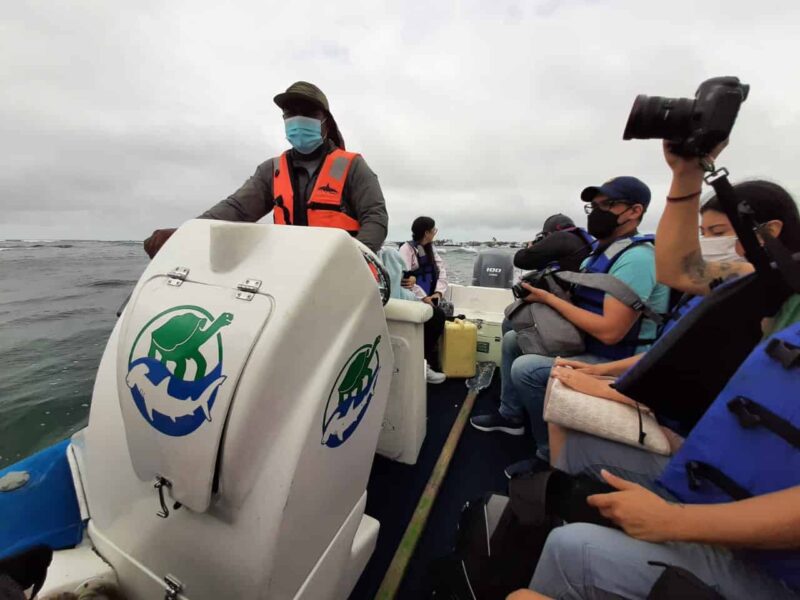Last month, 12 Ecuadorian journalists travelled to the Galapagos Islands with Internews’ support to engage in on-site investigative journalism and report on illegal fishing in the Galapagos.
The remote archipelago is one of the world’s most biodiverse maritime areas – but that diversity is now in danger, as Ecuador, in recent years, has become a key stop in a larger transnational illegal fishing route that includes Argentina, Chile, and Peru.
Illegal fishing is the world’s sixth most lucrative criminal economy with estimated revenues of $15 to 36 billion, according to a 2017 report by Global Financial Integrity. In July 2020, the Ecuadorean Navy issued a warning that a foreign fishing fleet of about 340 vessels, mostly Chinese-flagged or Chinese-owned, was stationed just outside Ecuador’s exclusive economic zone (EEZ) around the Galapagos Islands.
Of the 12 journalists, five are professional journalists that work in local Ecuadorian media outlets and seven are senior university students from La Universidad San Francisco de Quito (USFQ) journalism school. Their travel was funded by Internews, with support from partners USFQ and Ecuadorian media outlet GK.
Before the field reporting trip, Internews and its partners selected the 12 grantees through a competitive open grant call. Grantees received support through a series of training workshops, over six sessions (both virtual and in-person) they have improved their environmental reporting skills to cover protected areas in the Galapagos.
“I learned that there is more than one way of illegal fishing because not all methods are officially reported, such as undeclared fishing, accidental fishing, and artisanal fishing when using the longline fishing technique. Being able to interview day-to-day fishermen helped me shaped my story on a more focused thematic area,” said Yalileh Loaiza, a grantee and correspondent at Infobae in Ecuador.
The journalists sought to gather information to report on protected areas, to increase awareness about local and international illegal fishing and bring the issue to Ecuadorian policymakers for action.
While in the Galapagos, grantees had the opportunity to visit the Ecuadorian Navy base on San Cristobal Island, and meet with conservation stakeholders such as Arturo Izurieta Valery, former Director of the Charles Darwin Foundation, and current Executive Director of the government board in Galapagos; Michelle Carrere, current Editor for Mongabay Latam; and Maria Jose Barragan, Science Director at the Charles Darwin Foundation.
Over the next few months, they will receive mentorship from GK and USFQ through the story production process. The 12 stories produced from this trip will be published in January 2021 by GK and EJN; they can also be read on the University of San Francisco de Quito website.
